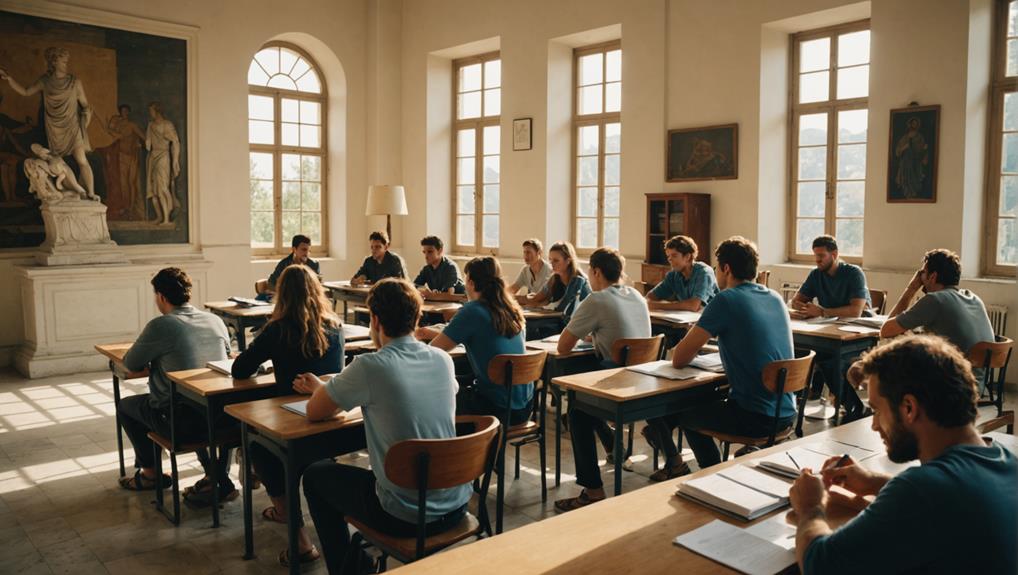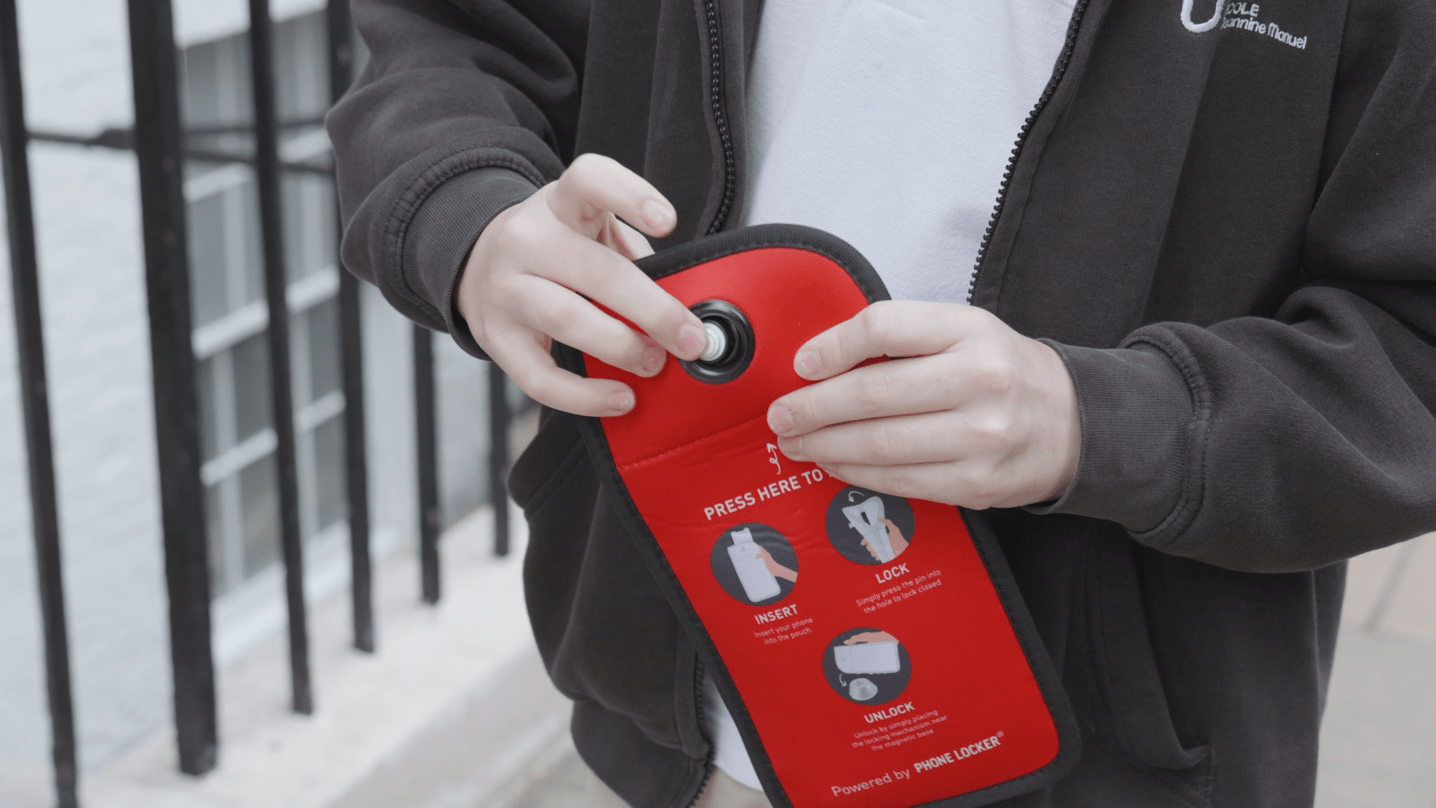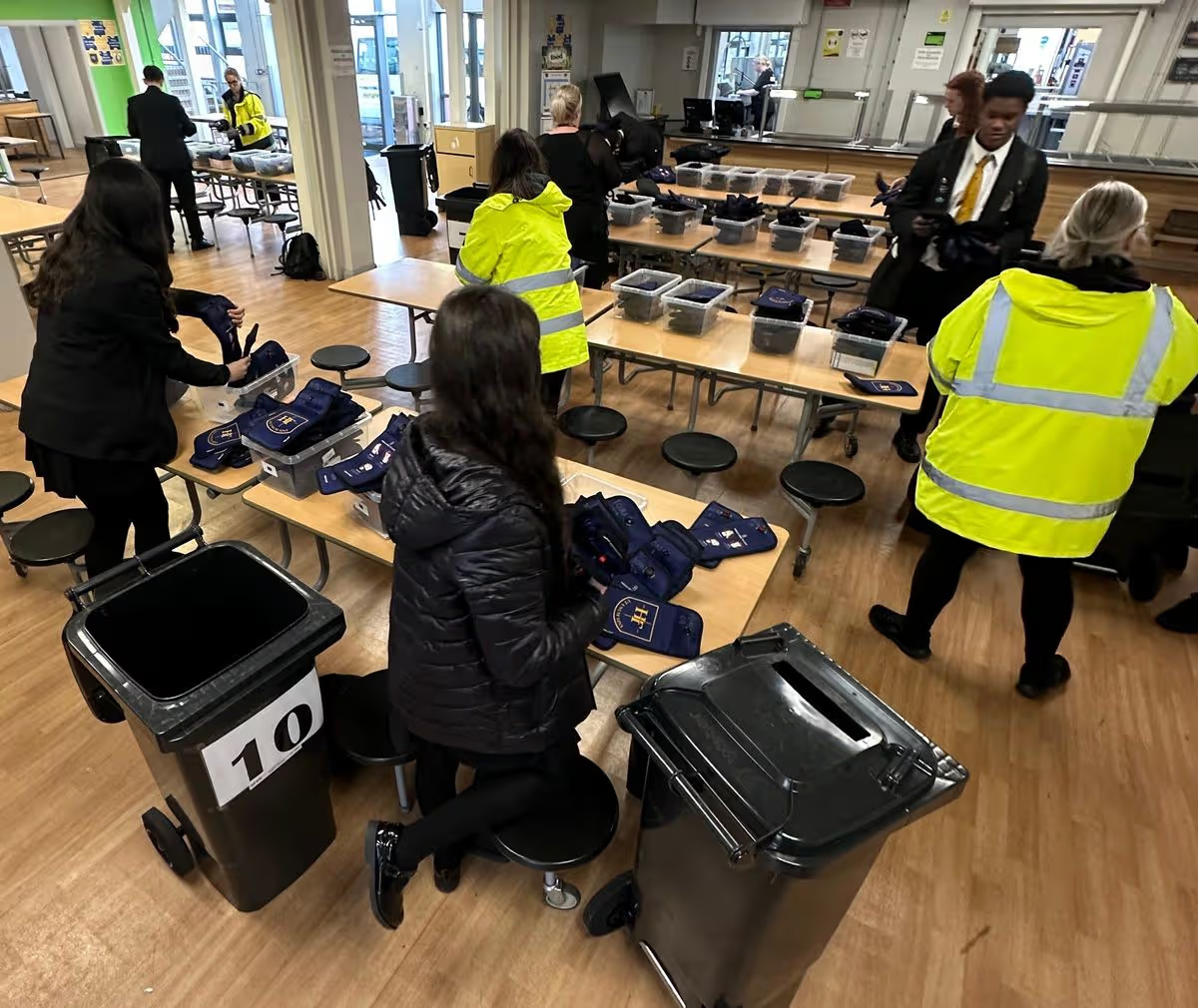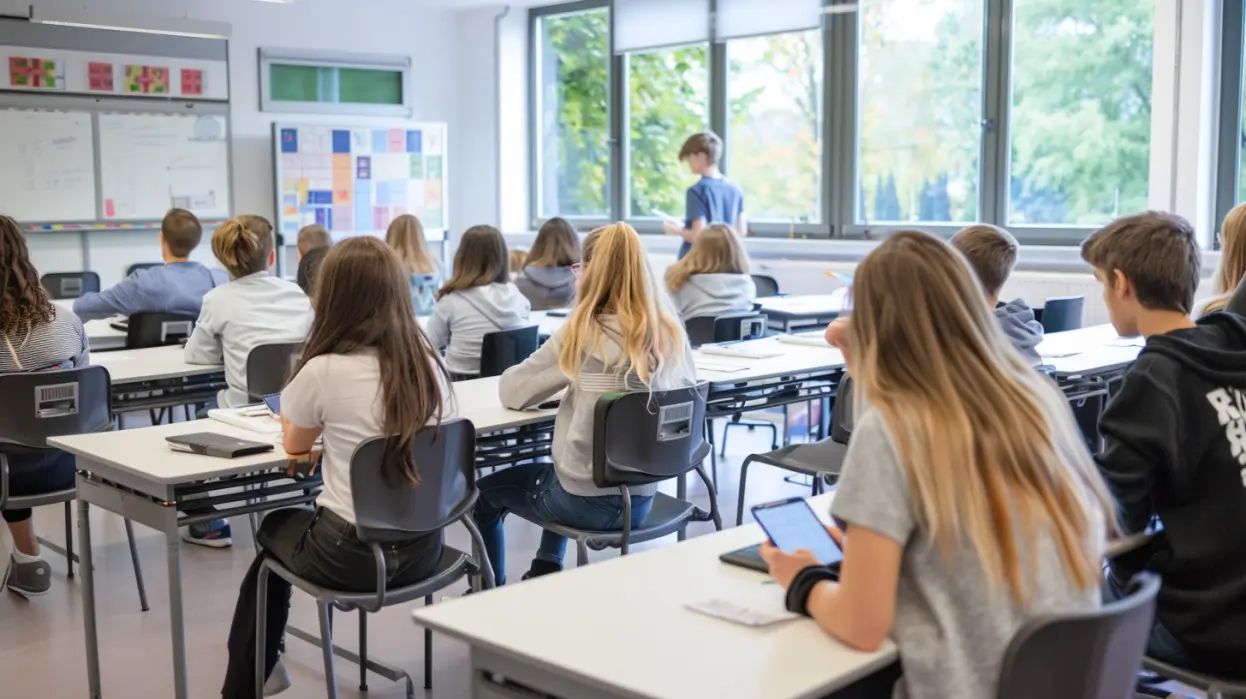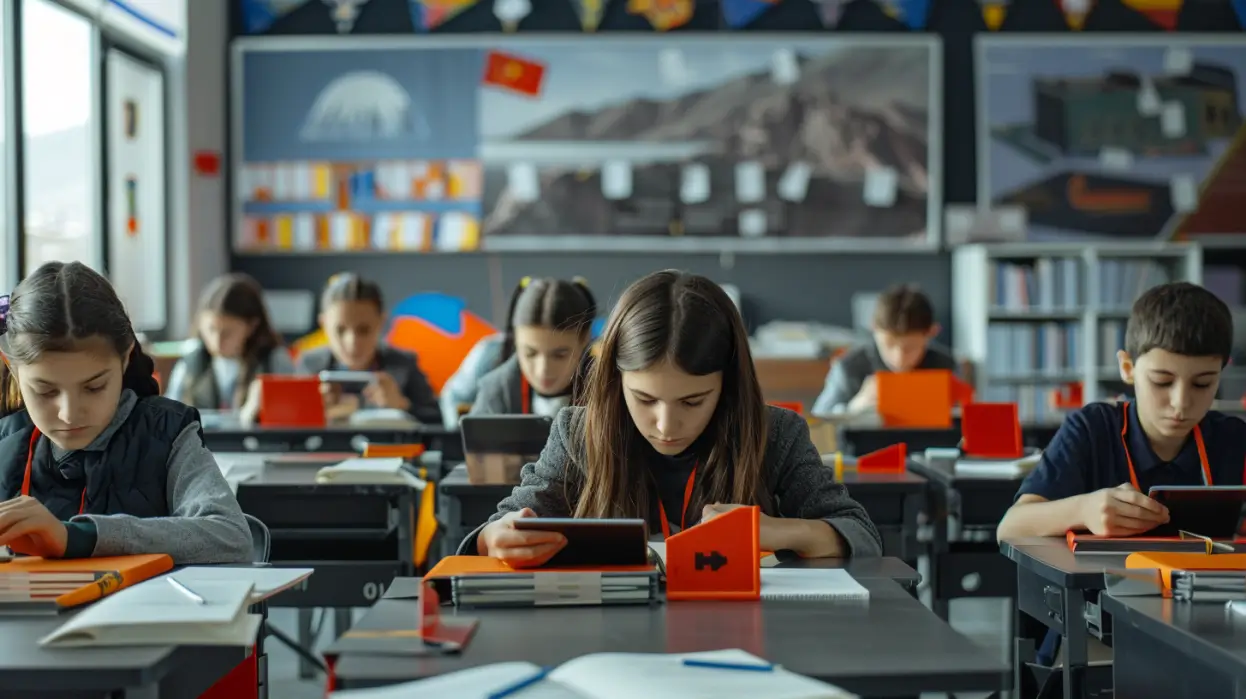Greece Bans Cell Phone Use in Classroms
Greece Bans Cell Phone Use in Classroms
Greece has implemented a thorough ban on cell phone use in classrooms to mitigate distractions and foster a focused learning environment. As part of this initiative, Greece bans cell phone use during lessons, requiring students to keep their phones in bags, though exceptions exist for health reasons. The policy entails immediate one-day suspensions for violators, with harsher penalties for repeat offenses, including potential expulsion for privacy breaches. This initiative, led by Minister of Education Kyriakos Pierrakakis, aligns with broader European trends and aims to address issues like cyberbullying and excessive screen time. Learn why such measures are gaining traction and how they can impact educational settings.
Key Takeaways
- Greece’s mobile phone ban in schools starts on September 11, 2024.
- Phones must remain in bags during lessons, with exceptions for health reasons.
- Violators face immediate one-day suspension, with harsher penalties for repeat offenses.
- The Yondr pouch system will be used to seal phones for grades 6 through 12.
- The ban aims to reduce distractions and combat cyberbullying in schools.
The New Mobile Phone Ban in Greek Schools (2024 Update)
In a decisive move to enhance the educational environment, Greece has implemented a thorough ban on mobile phone use in schools, effective September 11, 2024. The new regulation builds on previous policies, prohibiting students from using mobile phones and other electronic devices, including tablets and smartwatches, during school hours. Under this rule, students must keep their devices stored in their bags during lessons, with exceptions granted only for health-related needs. The ban applies nationwide to both primary and secondary schools, aiming to reduce distractions, curb cyberbullying, and promote a more focused learning atmosphere.
One of the key updates in the 2024 policy is the stricter enforcement measures. Schools are now required to implement more consistent monitoring systems to ensure compliance, and teachers have been given clearer guidelines on handling violations. Students found using their phones during school hours risk having their devices confiscated, with some schools even introducing tiered penalties for repeat offenses. Additionally, mobile devices must now be turned off and stored in designated areas, such as lockers or phone locking pouches, to prevent unauthorized use.
By restricting phone use, the Greek government hopes to encourage more face-to-face interactions among students, as well as a healthier balance between technology and in-person communication.
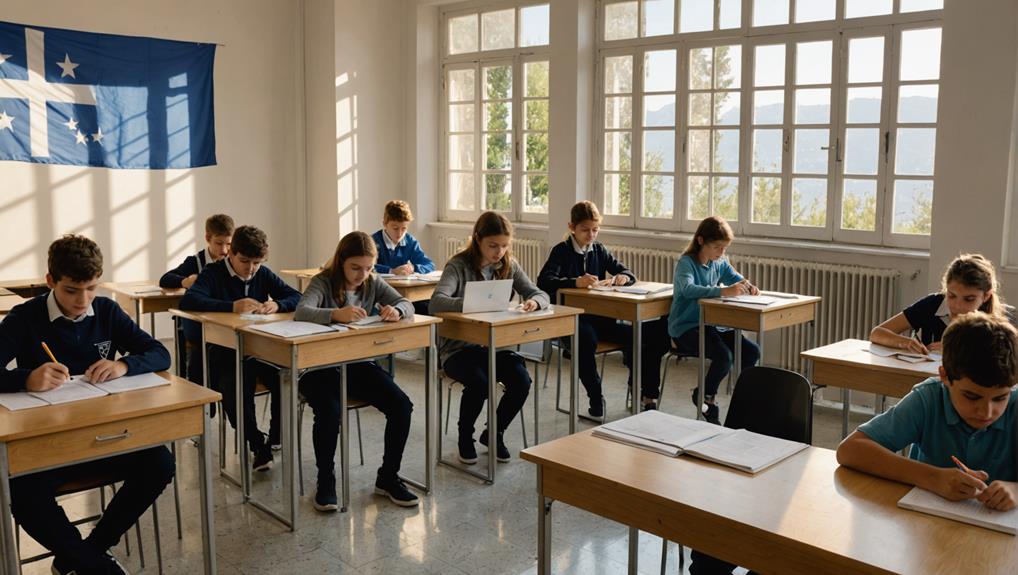
Consequences for Violating the Rules
Violating Greece’s new ban on cell phone use in classrooms comes with strict consequences to guarantee adherence and maintain a best possible learning environment. Students found flouting the rules face an immediate one-day suspension. Repeat offenders may be removed from lessons for several days.
More severe violations, such as filming peers or teachers without permission, could result in expulsion. Additionally, capturing personal data without consent may lead to a mandatory change of school environment, enforced by the Faculty Association.
This stringent approach underscores the importance of creating a focused educational setting, free from distractions and privacy violations, thereby fostering a culture of respect and concentration in classrooms.
Why Greece Implemented the Ban
The rationale behind Greece’s decision to ban mobile phones in classrooms stems from a commitment to enhancing the educational environment and addressing pressing social issues. Key among these issues is the impact of mobile phones on the learning process and the rise in cyberbullying incidents. Studies have shown that excessive screen time can adversely affect adolescents’ physical and mental health. Moreover, a significant portion of students gets distracted by digital devices, impairing their focus and engagement during lessons.
| Issue | Impact | Solution |
|---|---|---|
| Learning Distraction | 1 in 3 students distracted | Phones in bags |
| Cyberbullying | Increased incidents | Strict penalties |
| Physical Health | Risks from screen time | Limited phone use |
| Mental Health | Adverse effects | Focused environment |
Cyberbullying has been a major driving force behind the ban, with reports of students using phones to ridicule their peers, often through invasive practices like filming in private spaces or creating deepfake videos. Such actions have led to calls for stringent measures to protect students’ well-being. By enacting this ban, Greece aims to create a safer, more focused educational setting, ensuring students are fully engaged and protected from digital distractions and cyber threats. This initiative aligns with broader European trends towards stricter mobile phone regulations in schools.
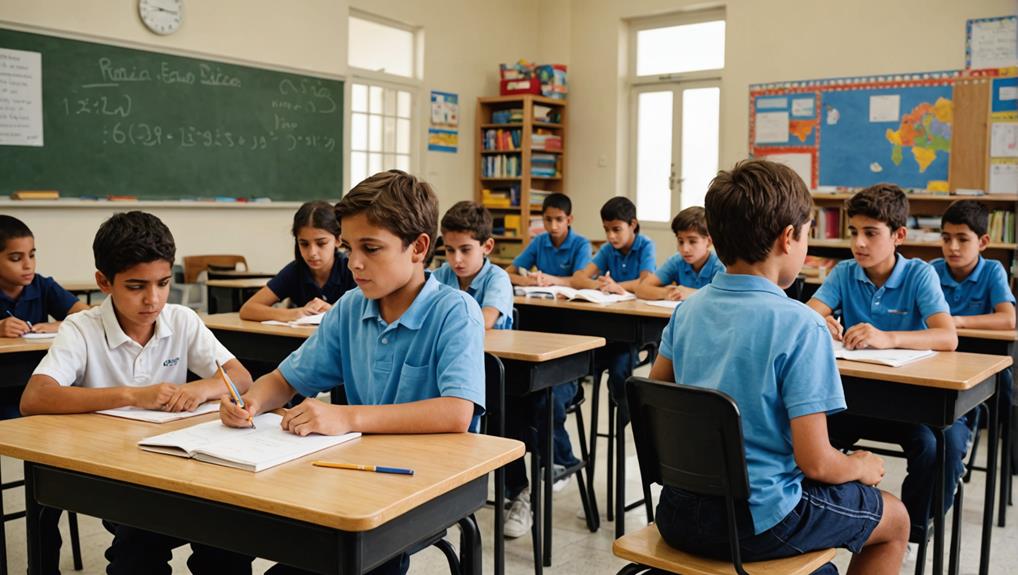
Mobile Phone Management Solutions in Greek Schools
To address the mobile phone ban in Greek schools, institutions are exploring various management solutions. These include the Yondr pouch system and implementing locker policies.
Yondr or Phonelocker pouches securely lock away phones during school hours, ensuring minimal distractions and enhanced focus.
Locker policies provide an alternative by requiring students to store their phones in designated areas. This further supports the initiative to create a conducive learning environment.
Yondr Pouch System
Implementing the Yondr pouch system in schools is a key step in managing mobile phone use and reducing distractions. This innovative approach requires students in grades 6 through 12 to place their phones in specialized pouches when they enter school. These pouches can only be opened at the end of the school day. Recently adopted in six middle and high schools, this initiative aims to create a more focused and supportive learning environment.
The Yondr pouch system operates on a simple yet effective principle: restricting access to mobile devices during school hours. By ensuring that students physically carry their sealed phones to and from school, the system minimizes opportunities for distraction and misuse, such as unauthorized filming or cyberbullying.
This aligns with educational strategies designed to enhance student engagement, mental well-being, and academic performance. Administrators and teachers emphasize that such measures not only boost academic focus but also encourage more face-to-face interaction, supporting the development of social skills.
Phonelocker Pouch
However, Phonelocker presents a compelling alternative with additional features that set it apart. Like Yondr, Phonelocker’s pouches secure mobile phones during school hours, but they offer several advantages:
- Signal-blocking capabilities: Phonelocker’s pouches are made from materials that block phone signals. This ensures that there is no communication or unauthorized use while phones are stored.
- Centralized unlocking system: This feature allows school staff to control when students can access their phones. It enhances security and simplifies management for teachers.
- One-time purchase model: Unlike Yondr’s subscription service, Phonelocker offers a one-time purchase option. This means there are no recurring fees, making it a cost-effective choice for schools. Additionally, Phonelocker provides complimentary magnetic bases for unlocking with bulk orders, adding more value.
Schools now have a choice between the simplicity and structure of Yondr, or the enhanced flexibility and features of Phonelocker. For institutions looking for a customizable, budget-friendly solution with long-term benefits, Phonelocker offers a more sustainable and feature-rich option for managing mobile phones in classrooms.
Locker Policy
How can schools effectively manage mobile phone usage and minimize distractions? Greece’s new regulations ban mobile phones in classrooms. Prime Minister Kyriakos Mitsotakis announced a pilot program to install designated lockers in some schools. These lockers will securely store students’ phones, keeping them out of sight during lessons.
This locker policy aims to improve the learning environment by reducing distractions and maintaining focus. Here are some key features and benefits of implementing a locker system:
- Security: Lockers provide a safe place for students to store their phones, lowering the risk of theft or loss.
- Focus: Keeping phones out of reach helps students concentrate and engage in classroom activities.
- Compliance: A designated locker system makes it easier for schools to enforce phone bans consistently.
- Convenience: Lockers allow students to access their phones during breaks and after school without disrupting classes.
- Accountability: With clear rules, students are more likely to follow the protocols in place.
This innovative approach highlights Greece’s commitment to prioritizing education and minimizing distractions in the classroom.

European Trends in Mobile Phone Bans
More and more European countries are adopting measures to ban mobile phones in schools, showing a stronger commitment to improving educational focus and reducing distractions. In addition to Greece, many other nations have joined this movement, with France leading the way. In 2018, France became one of the first countries to enforce a nationwide ban on mobile phones in primary and lower secondary schools, setting an example for others to follow.
The Netherlands has already banned smartphones in secondary schools as of January 2024 and plans to extend this ban to elementary schools by September. Spain has taken a more regional approach, allowing individual communities to decide on phone policies. For instance, schools in Madrid have implemented specific restrictions to reduce distractions during class. Portugal is also exploring potential restrictions, but a universal ban has not yet been enforced.
Cyprus and Sweden are also preparing to introduce similar bans, further highlighting the growing adoption of this policy across Europe. These initiatives reflect a widespread acknowledgment of the need for learning environments free from mobile device distractions. This collective effort not only aims to reduce distractions but also seeks to improve academic performance and student engagement across the continent.
Frequently Asked Questions
Schools will establish designated communication channels for emergencies, such as central phone lines or dedicated staff contacts. This guarantees parents can promptly reach their children while maintaining the integrity of the mobile phone ban during lessons.
During school breaks, students may use their mobile phones within designated areas. These guidelines guarantee that while academic focus is maintained during lessons, students can still access their devices for necessary communication during breaks.
The ban will represent a monumental shift, but schools will make provisions to accommodate students with medical needs. These students will receive special permissions to ensure their health is monitored, balancing innovative learning with essential medical care.
Teachers are also subject to mobile phone restrictions to create a focused educational environment. However, they may have exceptions for educational purposes or emergencies, emphasizing the importance of equitable enforcement across all school members to maintain consistency.
Notwithstanding the restrictions, exceptions will be made for educational purposes, enabling the use of mobile phones as indispensable learning tools. This thoughtful provision guarantees that technology enhances rather than hinders the educational experience.
Conclusion
The all-encompassing ban on mobile phone use in Greek classrooms is a significant stride toward enhancing educational engagement and minimizing distractions. As part of this initiative, Greece bans cell phone use by requiring students to store their phones in their bags, fostering a more focused learning environment. The campaign aligns with broader measures against cyberbullying and mirrors similar policies in Europe. This initiative, supported by empirical evidence and rigorous enforcement, is a beacon of hope for improved student well-being and academic performance.


